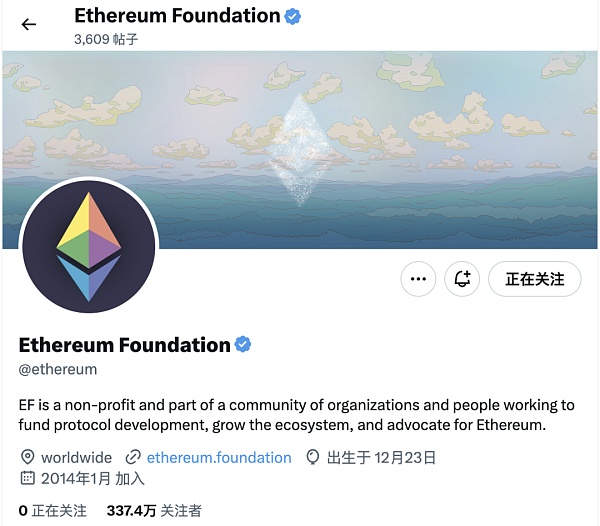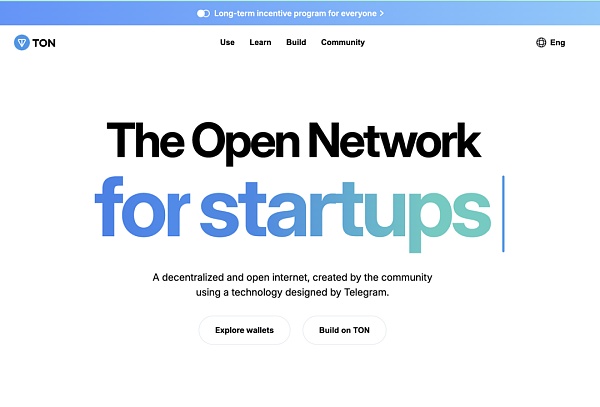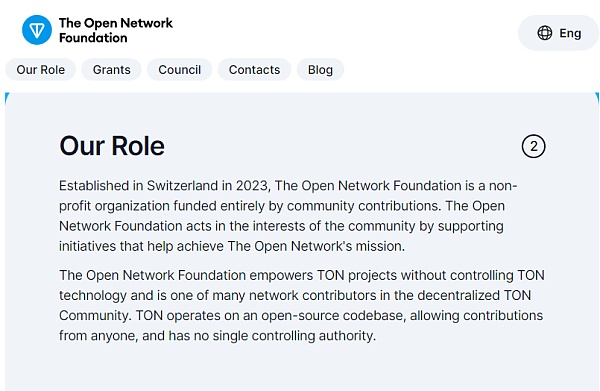The History of Ethereum’s Coin Issuance
At midnight on July 22, 2014, Ethereum finally started a 42-day public pre-sale.
On Ethereum’s white and gray official website, right in the middle is the number of Ethereum coins sold so far. In just 12 hours, more than 7 million Ethereum coins were sold, worth about 2.2 million US dollars. To the left of this sales performance number are the remaining sales days, and to the right are the remaining days at the current price. Below the three sets of numbers is a black button that says "Buy Ethereum Coins", as well as links to legal documents such as "Terms and Conditions", "Purchase Agreement", "White Paper" and "Expected Use of Income".
At the beginning of the "Terms and Conditions" document, Ethereum wrote: "Distributed applications running on the Ethereum open source software platform (the "Ethereum Platform") require Ether (ETH), and the sale of Ether, a cryptographic fuel, to Ether purchasers is subject to the following terms and conditions (the "Terms")."

Image source: Ethereum Foundation official website
The fundraising model of using mainstream assets such as BTC to purchase project tokens that are still on paper has since successfully kicked off, igniting the subsequent ICO craze of virtual currency projects around the world.
What many friends don’t know is that Ethereum had established a company called Bitcoin Decentral (later renamed Decentral) in Toronto in the early days. At the critical moment when Ethereum started pre-sale in 2014, the core team began to have differences about the subsequent legal entity of Ethereum, and they were roughly divided into two factions:
One faction is Charles, the CEO of Ethereum, and others. Their idea is to set up a non-profit foundation to support the development of the open source Ethereum protocol, and at the same time set up a for-profit company to provide support for the protocol and build an application layer, and centrally manage and have a predictable source of income.
The other group, represented by Vitalik, the soul of Ethereum, prefers to set up a non-profit foundation to support developers around the world to build Ethereum in a more decentralized and organic way.
The final solution is a compromise: In July 2014, the Ethereum team established a Swiss limited liability company called "Ether Switzerland" (EthSuisse) and established the Ethereum Foundation (Stiftung Ethereum) in Zug, Switzerland (one of the states with the lowest corporate tax rates in Switzerland).

Image source: Ethereum Foundation official X account
The token sale of Ethereum is handled by Ethereum Switzerland GmbH. After the pre-sale, Ethereum Switzerland GmbH will be dissolved, and the Ethereum Foundation will be responsible for managing the raised funds to support platform development and infrastructure construction. At the same time, all codes on the Ethereum platform will be open source and free, and developers from anywhere can participate in the platform construction and build applications.

Image source: Ethereum Foundation official website
10 years have passed, and Ethereum has become the industry's undisputed leader, and is being continuously referenced and learned by more and more friendly companies, whether it is its open organizational philosophy or its model of using foundations to issue coins.
Why choose a Swiss foundation
Swiss foundations have a good reputation.The good reputation comes from both the political and economic characteristics of Switzerland itself and the legal characteristics of Swiss foundations. Swiss foundations have independent legal personality, but no shareholders. The assets of the foundation are managed by the foundation council in accordance with the foundation's purpose. The use of foundation property by the board of directors is supervised by the Federal Supervisory Authority for Foundations (FSAF).
As of January 2023, a total of 17,830 foundations have been established in Switzerland. TON, the popular public chain project this year, also established a Swiss foundation in 2023. Its president Steve Yun said, "Switzerland has dual advantages that can enhance the TON ecosystem and our global community of TON enthusiasts." "Switzerland has a reputation for world-class regulatory standards, providing the TON Foundation with unparalleled credibility and opening the door to strategic partnerships and enterprise-level integration to strengthen the open network. Our community will find that this move has achieved greater transparency and governance for our increasingly dynamic network. This is not only a milestone, but also a gateway for the TON ecosystem and community to achieve sustainable, long-term growth."

Picture source: TON official website

Image source: TON official website
Regulation of Swiss Foundation Coin Issuance
Currently, the Swiss Financial Market Supervisory Authority (FINMA) has no special legislation on ICOs. Nevertheless, coin issuance may involve relevant supervision in the following areas.
Banking law: Under Swiss banking law, if you accept or advertise to the public that you will accept more than 20 deposits from the public, you may need to apply for a banking license, but since most ICOs do not involve repayment to investors, ICO issuance can be carried out by non-banks.
Securities-related laws: Whether a token is considered a security under Swiss law depends on its economic function. Although the issuance of securities in Switzerland is not as strict as in the United States, China and other countries, it is still subject to certain supervision. According to FINMA's classification of tokens as payment tokens, utility tokens, and asset tokens, payment tokens are not securities, but whether utility tokens and asset tokens are securities requires case-by-case analysis. If the sole purpose of a utility token is to grant digital access rights (access tokens) to an application or service, and the token can actually be used in this way when it is issued, then FINMA will not regard the utility token as a security.
If asset tokens are standardized and suitable for large-scale trading, FINMA will regard them as securities. Token purchase rights sold in the pre-sale phase of an ICO may also be considered securities. For public offerings of stocks or bonds, a prospectus must be published in accordance with the Swiss Code of Obligations (CO). This provision will also apply if the equity or bond issuance is carried out in the form of a token sale. The prospectus liability stipulated by the CO is crucial for ICOs. If rights similar to stocks or bonds are offered, the court may apply the prospectus liability rules to the ICO's white paper. Therefore, anyone involved in the preparation of the white paper (including advisors) may be liable for incorrect or misleading information contained in the white paper.
In addition, if the token qualifies as a security, the creation and issuance of derivatives on the primary market will be regulated by a broker license. Similarly, if the token is underwritten and offered to the public, it is also subject to the same regulation. If the token trading platform adopts a non-autonomous order matching method, it is also regulated by FINMA.
The analysis of whether a token is a security requires a specific case analysis.
Blockchain Law: Switzerland officially implemented the Swiss Distributed Ledger Technology (DLT) Act on January 1, 2021. The Act introduced DLT securities (registered uncertificated securities), which eliminated the written requirements for traditional securities in the transfer process. At the same time, the DLT Act also introduced a special license, the DLT trading facility license (DLT trading facilities). According to attorney Mankunkin's understanding, the license is applicable to exchanges.
Tax law: Swiss foundations are not automatically tax-exempt like offshore foundations and must apply for tax exemption based on the facts and circumstances of the foundation. A foundation that has been approved for charitable purposes and whose income is used entirely for non-profit organizations or projects may be tax-exempt. If not, donations to the foundation may be subject to gift tax and corporate income tax based on the income received.
Anti-money laundering law: This is a commonplace topic and will not be expanded on.
Main establishment requirements for Swiss foundations
Clear charter. A foundation must be established in front of a notary with a true charter, created by allocating a capital amount for a specific purpose, and must be placed under the supervision of the federal, state or municipality to which it belongs. This supervisory body ensures that the foundation's resources are used for the intended purpose.
Minimum donation of CHF 50,000 (approximately USD 55,000). The minimum initial donation for a Swiss foundation is CHF 50,000, which can be set up for a specific purpose and does not require the designation of a beneficiary.
Must have local board members. The founder can be a legal entity or an individual and can be appointed as the chairperson of the foundation's board. At least one board member with signing authority must be resident in Switzerland. Details of the board members are available on the public register.
Foundations must be audited. The foundation should appoint an independent external auditor to review the foundation's annual accounts. An exemption from the audit requirement can only be applied to FINMA if the foundation does not raise public funds and has a balance sheet total of less than CHF 200,000 for two consecutive years.
Mankiw's Advice
A successful blockchain project is a combination of the right time and the right place, and it is also a compromise between innovation and compliance. As a series of articles on the construction of the Web3 project architecture, this article combs through the history of the Ethereum Foundation's coin issuance and the establishment of the Swiss Foundation, hoping to provide more references for Web3 entrepreneurs in terms of compliance in the early stages of project launch.
Overall, as a project founding team, you can choose the location of the foundation that suits your project based on factors such as the track type of the entrepreneurial project, the country and region where the target users are located, and the transaction requirements of the investment fund. If there are more issues regarding the establishment and compliance of the Web3 Foundation that need further communication and discussion, please feel free to contact Mankiw.
 JinseFinance
JinseFinance
 JinseFinance
JinseFinance JinseFinance
JinseFinance JinseFinance
JinseFinance Alex
Alex Bitcoinworld
Bitcoinworld Others
Others Nulltx
Nulltx Cointelegraph
Cointelegraph Cointelegraph
Cointelegraph Cointelegraph
Cointelegraph